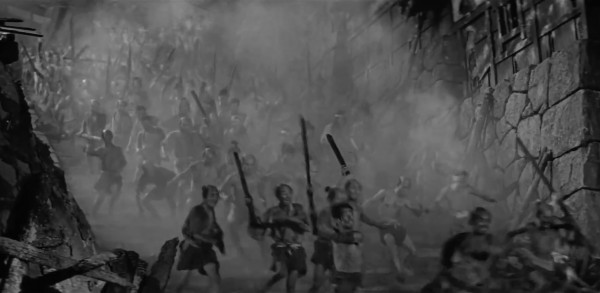
About a month ago, the video series Every Frame a Painting posted a short video which illustrated Kurosawa’s use of geometry, and which we discussed here. It was said to be an outtake from a longer Kurosawa video essay. That longer essay is now here and it’s great. In fact, it’s been here since last Thursday, but since I wasn’t anywhere near a computer until now, it’s taken me a while to link to it.
The eight and a half minute video looks at Kurosawa’s use of movement, not only with his actors but also in his editing, backgrounds and other aspects of his filmmaking. Here is the video’s description: “Can movement tell a story? Sure, if you’re as gifted as Akira Kurosawa. More than any other filmmaker, he had an innate understanding of movement and how to capture it onscreen. Join me today in studying the master, possibly the greatest composer of motion in film history.”
You can view the full video below.
I would also highly recommend watching all the other videos in the Every Frame a Painting series, which are available through the series’ YouTube page. The creator Tony Zhou is a San Francisco based filmmaker and freelance editor who has been publishing these highly professional and roughly monthly videos for about a year now. My personal favourites so far would be his videos on Edgar Wright, Spielberg, Satoshi Kon, David Fincher, Jackie Chan, Drive, and of course the Kurosawa ones. Well, that’s about half of the total. They really are that good.
You can follow Zhou’s Every Frame a Painting over at Facebook, Tumblr and Twitter. And if you enjoy the videos as much as I do, consider becoming a patron and supporting the series through Zhou’s Patreon page!






I love Tony Zhou’s channel. Half an hour watching it and I feel I’ve done a years course in editing and directing, it really is superb. His clips of Kurosawa, plus the ones he’s done on action and comedy films explains so much about why I find so many modern Hollywood action and comedy films so frustrating. It is weird as to why film making has gone backwards in some ways.
I am a little curious though as to why he is picking on Joss Whedon specifically on that clip. I don’t think he’s the worst offender in modern action direction. Having said that, it is an excellent example!